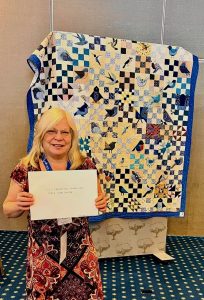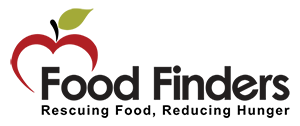 And the 2022 Winners Are…
And the 2022 Winners Are…
We are so excited to share the recipients of the FAUSA sponsored Grants and Awards as well as the FAUSA submitted Development Grant winners. These were announced on the final day of the FAWCO Interim Meeting on May 21, 2022 in Luxembourg City.
The Education Awards
The Education Awards are sponsored by various individuals or organizations. Applications are sent to the Education Administrator who removes any identifying information. The submissions are then sent two 2 committees that select the best recipient.
- FAUSA Skills Enhancement Award, sponsored by FAUSA. This year's recipient is Brook Viertel, a member of AWC Hamburg. As a licensed psychotherapist, she has both the ethical responsibility and the personal passion to continually expand and strengthen her clinical skills. She has found in the past years that many expat women have been challenged to find a qualified therapist offering treatment in English. She is planning to complete a certified training course in trauma therapy through the “Zentrum für Psychotraumatologie-Hamburg” and hopes to complete this comprehensive certification program which includes all aspects of clinical work with traumatized patients by October 2024.
 Development Grants
Development Grants
Development Grants are also sponsored by various individuals or organizations or clubs. The applications are sent to the Development Grant administrator who removes any identifying information and vets the information about the grant’s organization or NGO, if applicable. Every FAWCO Club is then sent one ballot to vote on the various grants. This year there were 21 grants awarded in the areas of Education, Environment, Health, Global Issues, and Human Rights. Forty-one of our 56 clubs responded by returning their ballot.
- FAUSA Effecting Change for Women and Children at Risk Development Grant, sponsored by FAUSA: This year's recipient is Empowering Community Health Workers in a Haitian Shantytown, nominated by FAUSA member, Liz Hemminger. The Lamp’s Community Health Workers operate a “feet on the ground” support system in Cité Soleil, a shantytown of 35,000 controlled by gangs, with no electricity, sanitation or plumbing. The Lamp’s health center, established in 2006, is the only healthcare available to these people. For the past 6 years, locally trained workers with the ability to move about the community unhindered, have been visiting each household. The grant funds will supply them with essentials for these visits that provide malnutrition screenings, (that is supported by our nutrition program), pre- and post-natal care, competent first aid and ongoing health education. They also aid in safe passage to the health center for care by the professional staff. They are the trusted link between the community and the clinic. The grant funds will provide the equipment to aid these workers in these tasks and the supplies needed to support this care for one year. Additionally, it will furnish available space for counseling.
- 2022 Educating Women and Girls Worldwide, sponsored in part by Renuka Matthews. This year’s recipient is MaaSAE Girls Secondary School, located in Monduli, Tanzania and nominated by FAUSA member, Juliet Cutler. Education is one of the most effective interventions for poverty alleviation, particularly for girls. However, most Maasai girls never get the chance to attend school. Fewer than 20% of the Maasai girls enroll in school. Only one in five finish primary school, and only one in 15 proceed to secondary school. Dropouts are caused by early pregnancies, forced marriages, female genital mutilation, and other economic and cultural factors. Maasai leaders established the MaaSAE Girls Secondary School in 1995 to provide a safe and supportive educational environment for these at-risk girls. The school focuses on education as a tool of empowerment that allows the young Maasai women to escape the bonds of poverty and gender-based violence. The grant funds will finance three scholarships for Maasai girls who would not otherwise have access to education and would also provide reproductive and menstrual health education to 380 students at the MaaSAE Girls Secondary School in Tanzania.


